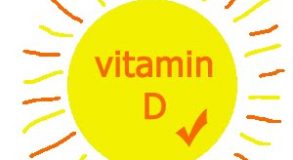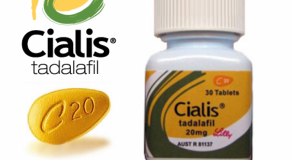Potency regulators are a group of medicines that includes a variety of drugs used to treat erectile dysfunction.
The following groups among drugs for erectile dysfunction treatment can be distinguished:
- means increasing nitric oxide level:
- selective PDE-5 inhibitors: sildenafil citrate, tadalafil, vardenafil;
- NO-synthase activators – homeopathic means;
- alpha-adrenoblockers:
- selective alpha2-adrenoblockers: yohimbine (yohimbine hydrochloride);
- non-selective alpha-blockers – phentolamine;
- prostaglandin E analogs: alprostadil;
- complex composition means;
- androgens: testosterone;
- myotropic antispasmodics: papaverine.
Selective PDE-5 Inhibitors
Selective PDE-5 inhibitors are the first-line drugs for ED treatment. The mechanism of action is the same: they have a peripheral action, selectively inhibiting cGMP – a specific PDE-5, which is responsible for cGMP breakdown in cavernous bodies. By blocking PDE-5 and stabilizing cGMP drugs of this group enhance nitrogen oxide effect, that activates guanylate cyclase, which leads to cGMP level increase, relaxing cavernous bodies smooth muscles and blood flow to them. Direct relaxing effect on the smooth muscle of the cavernous bodies is absent. Numerous clinical studies have proven effectiveness and safety of PDE-5 inhibitors for ED treatment. These drugs differ in action duration: sildenafil citrate and vardenafil – up to 5 hours and tadalafil – up to 36 hours. Their effect is manifested only during sexual excitement. Long-term effectiveness of tadalafil can restore suddenness and naturalness of sexual relations.
Sildenafil and vardenafil are similar in chemical structure while tadalafil substantially differs from them in structure and pharmacokinetic properties.
The smooth muscles of the cavernous bodies, PDE-5 is contained in small quantities in thrombocytes, the tissues of vascular and internal organs smooth muscle and skeletal muscle. PDE-5 inhibition in these tissues can lead to increased antiaggregatory activity of thrombocytes nitric oxide in vitro, thrombocyte aggregate formation suppression and peripheral arteriovenous dilatation in vivo. There are clear differences in activity between preparations regarding PDE-6, which plays an important role in the conversion of light impulses into a nerve in the retina. Furthermore, these three drugs differ in activity regarding PDE-11. Tadalafil is 14 times more selective to PDE-5 than PDE-11, but in therapeutic doses does not inhibit this enzyme. To date, it is found in various tissues of the human body (e. g., heart, thymus gland, brain and ovaries), but its role in metabolism remains unexplored. Sildenafil citrate and vardenafil have no inhibitory effect on PDE-11.
All PDE-5 inhibitors begin their action at about the same time (30 – 60 minutes), but its duration varies considerably. Longer than others effect has tadalafil (36 hours). The drugs are taken orally, about 1 hour before sexual intercourse. All three drugs (sildenafil citrate, vardenafil and tadalafil) are rapidly absorbed in the gastrointestinal tract. Absolute bioaccessibility is different: sildenafil citrate – 40%, vardenafil – 15%. Sildenafil citrate and vardenafil concentration reach its peak in 1 hour and tadalafil – in 2 hours. Absorption takes place mainly in the small intestine; reception of fatty foods does not cause delay or deterioration of tadalafil absorption but decreases and slows down the absorption of sildenafil citrate and vardenafil. The half-life period of sildenafil citrate and vardenafil is 3 – 5 hours, while Cialis – 17 – 21 hours. Despite long half-life period, tadalafil has no ability to cumulation, equal concentrations are reached on the fifth day with daily intake. Intact substances and major metabolites almost completely bound to plasma proteins. Sildenafil citrate, vardenafil and tadalafil are metabolized in the liver, involving CYP3A4 isoenzyme, and to a lesser extent – CYP2C9. Vardenafil metabolism also involves CYP3A5. Metabolites action selectivity is maintained, activity is more than 50% below intact substances. Tadalafil metabolites are inactive.
All PDE-5 inhibitors have a similar mechanism of action, which is connected to their influence on NO/cGMP. They enhance antihypertensive and microcirculation improving the effect of NO donators, including nitrates, therefore patients receiving such drugs should not be prescribed PDE-5 inhibitors. With simultaneous use of cytochrome P450 CYP3A4 enzyme inhibitors (HIV protease inhibitors, erythromycin, ketoconazole), it is advisable to reduce PDE-5 inhibitors dosage. Alcohol does not affect PDE-5 inhibitors biotransformation. When combined with acetylsalicylic acid hemorrhage time does not increase.

Homeopathic Means
Homeopathic medicines are medications that view symptoms of diseases as normal responses of the body as it attempts to regain health. Their composition includes affinity-purified antibodies (a mixture of C12, C30 and C200 homeopathic dilutions) to human endothelial NO-synthase – an enzyme involved in nitrogen oxide production. These drugs increase endothelial NO-synthase activity, restore NO production by endothelium during sexual stimulation, increase cGMP amount in smooth muscle and contribute to their relaxation, which increases cavernous bodies blood supply.
Unlike PDE-5 inhibitors, which enhance nitric oxide effect due to slowing down cGMP (read more) decomposition and accumulation, homeopathic means directly affect the production of endothelial vascular nitric oxide. Preclinical and clinical studies allow suggesting that long-term use of these drugs not only contributes to normalization of sexual indicators (including erectile function, libido, etc.) but also improves the vascular endothelial function. Homeopathics are the drug of choice for patients suffering from cardiovascular diseases, as they have no effect on arterial blood pressure. It should be noted that ED is usually detected at IHD, and these patients who receive in most cases nitric oxide donators (nitrates), are contraindicated PDE-5 inhibitors.
Yohimbine (Yohimbine Hydrochloride)
Yohimbine is an inhibitor of selective central and peripheral presynaptic alpha2-adrenoreceptors. In high doses, it blocks postsynaptic alpha- adrenoreceptors. In moderate doses – causes pelvic arteries vasodilation, which contributes to erectile function improvement (increases erection, prolongs sexual intercourse duration), stimulates spermatogenesis. Due to action on the central nervous system the drug improves mood, increases motor activity, sexual desire, may exacerbate anxiety. In a number of clinical studies yohimbine, effectiveness does not exceed placebo. The above properties allow using the drug for psychogenic erectile dysfunction prevention and treatment, and also as the general tonic for men. Yohimbine (yohimbine hydrochloride) is prescribed in courses (if necessary – repeated) lasting up to 10 weeks. Yohimbine should not be combined with drugs that affect mood, including antidepressants.
Phentolamine
Phentolamine is a drug providing a non-selective postsynaptic alpha1-adrenoreceptors blockade, which leads to disruption of adrenergic vasoconstrictor impulses transmission. Due to this, phentolamine mainly acts as detumescence blocker and is more often used in combinations. The drug is applied as intracavernous injection and orally.
Alprostadil
Alprostadil is a prostaglandin E analog, applied locally. At intracavernous or intraurethral administration has a relaxing effect on cavernous bodies smooth muscles, helps to increase blood flow and improve microcirculation, which leads to the adequate erection. The drug has no effect on ejaculation and fertilization. One of the possible drug mechanisms of action is based on alprostadil ability to bind with specific receptors on the cell surface and change adenylate cyclase activity. This leads to an increased cAMP concentration in cells, decrease in free intracellular calcium content and cavernous artery smooth muscle relaxation, which helps to improve venoocclusive mechanism function. On the other hand, alprostadil is an antagonist of compounds involved in nerve impulses transmission in alpha-adrenergic synapses and inhibiting presynaptic noradrenaline release in penile cavernous bodies.
At intraurethral administration, alprostadil is absorbed from urethra mucous membrane to spongy body. The effect appears within 5 – 10 minutes after administration and lasts for 30 – 60 min. Part of the administered dose is distributed in cavernous bodies (via collateral vessels), the rest – in perineum venous network; entering central venous circulation alprostadil almost completely cleared from systemic blood circulation via lungs; T1/2 – 0,5 – 1 min. It is metabolized forming various PGE-1 derivatives. The drug applied immediately before sexual intercourse.
Combined alprostadil use with other medications, administered in cavernous bodies, can lead to erection delays or priapism. The delayed erection may also be caused by simultaneous alprostadil use with myotropic antispasmodics (papaverine, bendazol) and alpha-adrenergic blocking agents. Alprostadil may enhance antihypertensives and vasodilators effects.
Complex Composition Means

Means of the complex composition are drugs and dietary supplements of plant and animal origin. They have different mechanisms of action: active substances in their composition (phytosterols, biostimulants, natural tocopherols) have bracing, stimulant and tonic effects. These agents perform a pro-androgenic activity, stimulate spermatogenesis, reduce sperm viscosity, anti-inflammatory and antimicrobial effect. Affecting central erection mechanisms and testicles, they reduce/increase libido, sexual satisfaction, full-fledged sperm production. They improve physical and mental performance, eliminate fatigue, have slight sedative action. When applied locally, these means enhance erection by increasing blood supply to penis cavernous bodies. Complex composition drugs pharmacokinetics and interactions are yet insufficiently studied. They are usually prescribed in courses, except for preparations for local use.
Indications for potency regulators main groups medication are common: erectile dysfunction of neurogenic, vascular, psychogenic or mixed etiology. Alprostadil is also used for pharmacological tests in complex erectile dysfunction diagnostic tests. Preparations of the complex composition are often applied at psychogenic ED, at decreased sexual activity in elderly age.
Potency regulators have a number of common for the whole group side effects. They include:
- headache;
- dizziness;
- skin rash;
- priapism.
Besides, when using PDE-5 inhibitors there observed:
- flushes;
- vision disorders when taking sildenafil citrate and vardenafil (changes in color perception, increased sensitivity to light, blurred vision);
- nasal congestion.
At yohimbine application there may develop:
- hypertension;
- tachycardia;
- orthostatic collapse;
- excitation;
- tremor;
- irritability;
- anxiety;
- there may be decreased urine output.
Alprostadil application may be accompanied by pains in the penis, urethra hemorrhages, uroclepsia, pelvic, lumbar, abdominal pains; at the injection site may cause a hematoma, itching, inflammation and edema.
At some diseases and conditions potency regulators use is contraindicated:
- hypersensitivity;
- anatomical penis deformity;
- diseases that can cause priapism – sickle cell anemia, leukemia, etc.;
- severe somatic pathology, when sexual activity is contraindicated (in particular, acute myocardial infarction within previous 90 days, unstable cardiac angina or cardiac angina occurring during sexual intercourse, cardiac insufficiency of 2nd and higher NYHA class, appeared during previous 6 months, uncontrolled cardiac arrhythmia, hypotension, uncontrolled arterial hypertension, blood stroke, during previous 6 months).
It is not recommended to use these drugs at patients with mental and intellectual disorders. PDE-5 inhibitors and yohimbine are contraindicated at severe renal and hepatic insufficiency. Furthermore, PDE-5 inhibitors are contraindicated while receiving NO donators, including nitrates (increased antihypertensive and antiplatelet action) and beta-adrenergic blocking agents (possible hypotension), with pigmentary retinal dystrophy. They should be used with caution in patients with aortic stenosis or hypertrophic cardiomyopathy of obstructive type, in presence of severe arterial and orthostatic hypotension. Yohimbine is contraindicated while receiving adrenoceptor agonist, at a predisposition to tachycardia. Limitations to its use are stomach and duodenal ulcer in anamnesis and present mental disorders. Alprostadil is contraindicated at venous thrombosis and increased blood viscosity.
Testosterone. Papaverine
The lesser value in ED treatment, compared to PDE-5 inhibitors, yohimbine and alprostadil, have androgen testosterone and papaverine myotropic means.
Testosterone is a natural biologically active androgen. Its preparations are used for substitution therapy. There are both injection and oral forms. Indication for use is erectile dysfunction caused by hypogonadism.
Papaverine is used for intracavernous injections – high concentrations at which double hemodynamic effect manifests – penile arteries expansion and veins narrowing, leading to venoocclusive mechanism activation. Besides papaverine is a non-selective phosphodiesterase inhibitor. When used in high concentrations, papaverine adverse effects are manifested:
- cavernous fibrosis;
- priapism;
- hepatotoxicity;
- systemic effect.

To reduce priapism and cavernous fibrosis risk the following combinations are used: papaverine + phentolamine (bimix), papaverine + phentolamine + alprostadil (trimix).
Besides listed above means as potency regulators, minoxidil is undergoing clinical trials as potassium channel activator. At ED it is used in the form of solution applied to the balanus. Due to potassium channels opening it causes arterioles dilation and increase blood flow.
In clinical trials, good results were observed, proving opioid antagonists naloxone and naltrexone receptors effectiveness in idiopathic ED. These drugs action supposedly connected to hormones level change that is released into CNS or deceleration impulses decrease from spinal cord or sacral parasympathetic ganglion. Studies on opioid receptor antagonists efficacy and safety are not yet finished.
Also, clinical trials are conducted on D1- and D2-dopamine hypothalamus receptors agonist – apomorphine, which improves erection. The drug is received sublingually, intranasally and s/c (for diagnostic tests).
Trazodone antidepressant selectively inhibits serotonin reuptake in the central nervous system. It has peripheral non-selective alpha- adrenoblocking effect and when administered intracavernously causes tumescence. However, according to clinical studies, intracavernous trazodone administration is not an effective way to treat ED. At the same time trazodone is possible to use for libido and potency disorders and as an antidepressant in patients with ED.
Studies about VIP (vasointestinal peptide) impact – a neurotransmitter, which provides vasodilatation – on erection process are still conducted. At intracavernosal administration it affects tumescence, so should only be used in combination with phentolamine.
Other potential ED drugs are melanocortin receptor agonists (melanotan). Works in the field of gene ED therapy and studies of vascular endothelial growth factor are of great interest. Identification of molecular genetic ED causes and development of new highly effective and safe drugs is subject to further research in this area.



